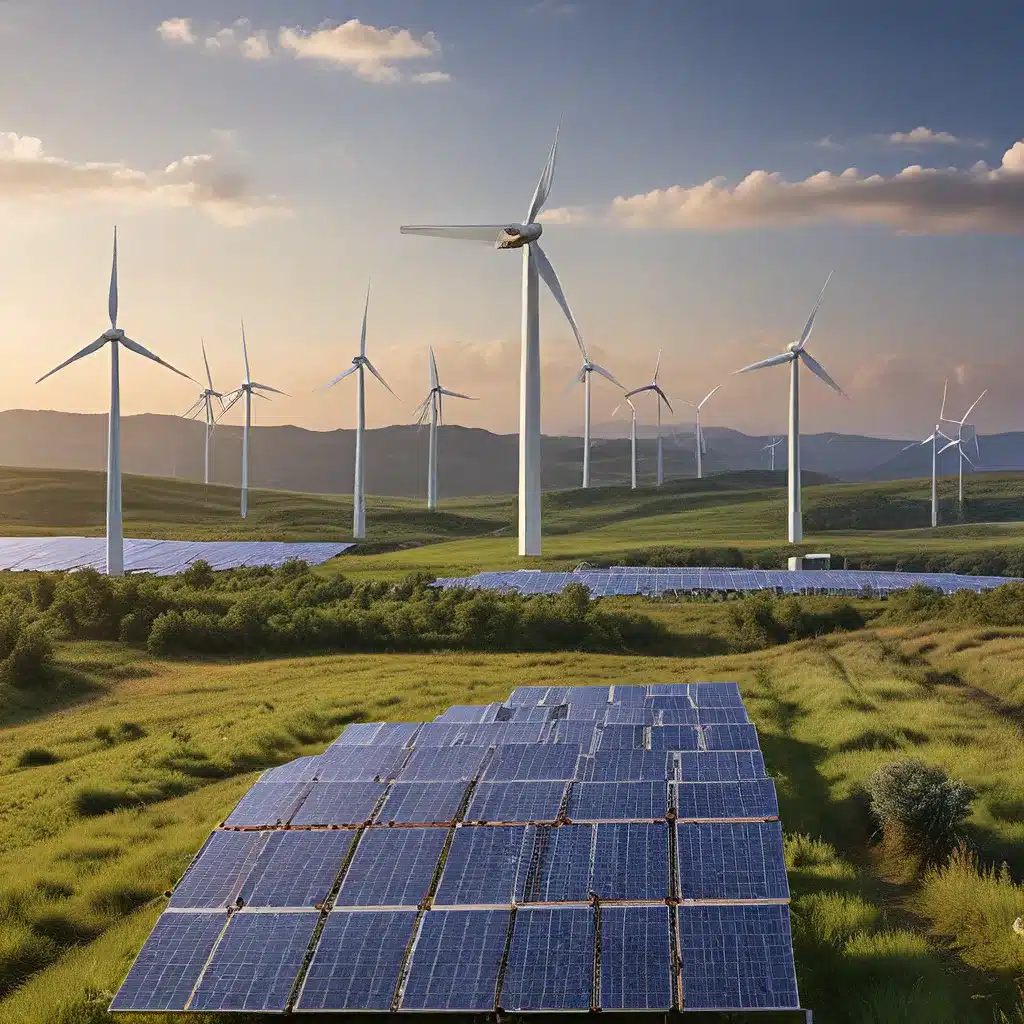
As a self-proclaimed “celebrity climate advocate” with a PhD in large-scale renewable energy projects, I’ve had the unique opportunity to traverse the complex landscape of renewable energy policy. It’s been a rollercoaster of a year, filled with selfies, video messages for AJR-loving lawmakers, and plenty of lively debates on everything from indigenous land sovereignty to electric vehicle tax credits.
But through all the whirlwind of political posturing and partisan bickering, one thing has become crystal clear to me: the path to a sustainable energy future is paved with common ground.
Finding Consensus Amidst the Chaos
When I first set out on this mission to “Reimagine Waste” with my team at the non-profit Planet Reimagined, I’ll admit I had some preconceived notions about the political landscape. I assumed the Democrats would be the renewable energy champions, while the Republicans would be the fossil fuel zealots, resistant to any progress on climate action.
Boy, was I wrong.
In reality, the picture is far more complex. As I sat down with lawmakers from both sides of the aisle, I quickly realized that the common ground on renewable energy solutions spans across party lines. Sure, the Democrats may be more vocal about climate change and emissions reductions, while the Republicans tend to focus on conservation, recreational opportunities, and energy security. But when it comes to the tangible benefits of new renewable energy projects, they’re all on board.
“A lot of Republican-led Red states now support all kinds of energy and are subtly adopting all of the above approaches,” I discovered, much to my surprise. Even the notoriously climate-skeptic Representative Marjorie Taylor Greene was trumpeting plans for a $25 billion solar cell manufacturing plant in her district.
It dawned on me that the key to unlocking widespread, bipartisan support for renewable energy lies in appealing to the economic and practical realities, rather than just the environmental imperatives. Because when you strip away the political posturing, everyone can agree that renewable energy is good for business.
Overcoming the Land Use Hurdle
Of course, the path to a renewable energy revolution isn’t without its challenges. One of the biggest obstacles we identified during our listening tour was the issue of land use – specifically, how to free up enough suitable land for wind and solar projects without disturbing untouched natural areas.
But once again, our research and conversations revealed a potential common ground solution: land-sharing.
By analyzing nearly 8 million acres of federal land already leased to oil and gas companies, we found that nearly 80% of that land is ideal for either solar or wind facilities. This presents a remarkable opportunity to expand renewable energy without encroaching on pristine landscapes.
The beauty of this land-sharing approach is that it’s a win-win for all stakeholders involved. The oil and gas companies have already gone through the environmental review process to secure these leases, so new renewable energy projects can piggyback on that and get approved quickly. And joint ventures between fossil and renewable companies can leverage the existing infrastructure, like access roads and transmission lines, to expedite the transition.
Importantly, this solution doesn’t just benefit the energy companies; it also helps the surrounding energy communities to transition away from fossil fuels and towards a sustainable future. By providing a clear path for renewable energy development on already-leased land, we can support local economies and workers, all while rapidly decreasing emissions.
A “Purple” Solution for a Green Future
Now, I’ll admit that this land-sharing approach may not be the most exciting solution for the hardcore progressives or the die-hard climate deniers out there. But our research and advocacy work has shown that it’s a large-scale, science-driven solution that addresses a wide range of environmental, social, economic, and political challenges.
And crucially, it’s a solution that has bipartisan support, particularly in the western United States. The renewable developers, fossil fuel companies, members of Congress, environmental groups, policy wonks, and energy communities have all found common ground in this land-sharing concept.
In fact, the current discussions around permitting reform have provided a timely entry point for our policy recommendations. With the backing of both Democrats and Republicans, we’re now working closely with the Biden administration to help clear the regulatory hurdles and accelerate the implementation of this “purple” solution.
Reimagining the Future, Together
Of course, land-sharing is not a silver bullet for all of our energy challenges. We’ll need to employ a variety of strategies to address issues like grid integration, offshore generation, demand reduction, and decarbonization of other sectors. But this common ground approach to policy development has shown us that progress is possible when we put aside our preconceptions and really listen to each other.
As I reflect on this whirlwind of a year, what I’ve learned most is not just about federal land policy or renewable energy regulation – it’s about the power of research-driven advocacy, nuanced understanding, and ambitious compromise. By staying focused on progress and finding ways to forge common ground, we can reimagine the future of renewable energy in a way that benefits everyone, regardless of their political affiliation.
So, let’s break free from those partisan boxes and work together to create a sustainable, prosperous, and equitable energy landscape for all. The path to a renewable future may not be straight and narrow, but if we’re willing to listen, learn, and find common ground, I believe we can get there – one step, one handshake, and one selfie at a time.

